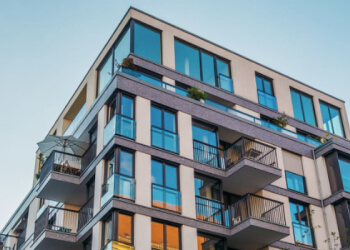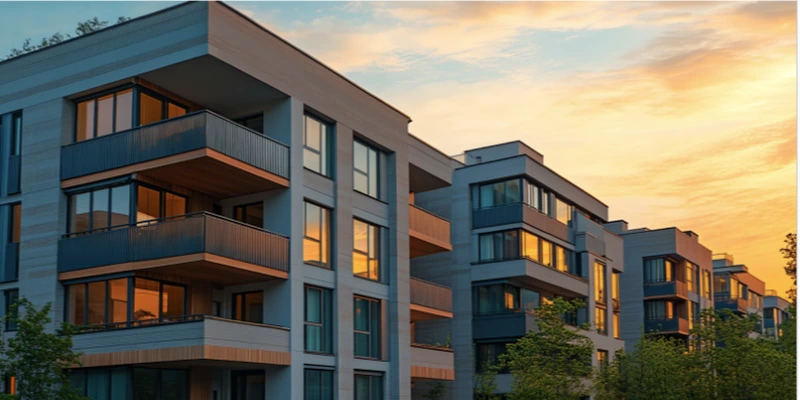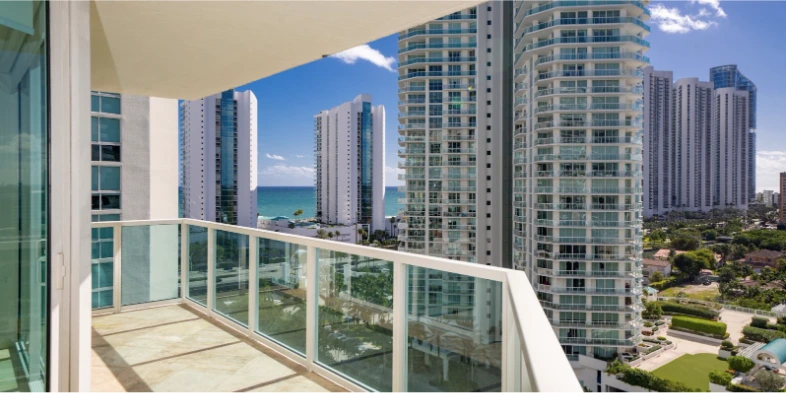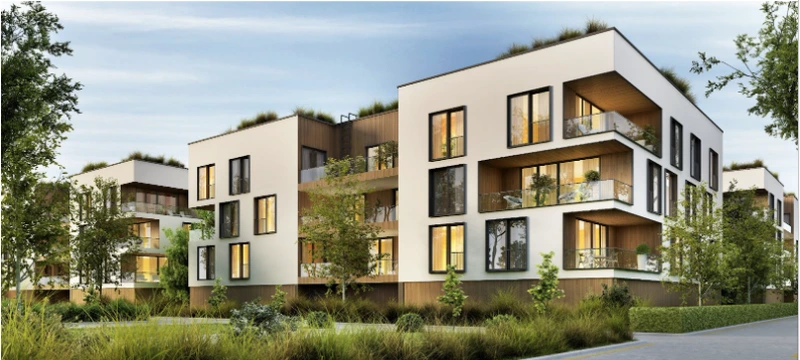Bare Land Condo vs Conventional Condo

Making sense of property ownership options isn't always straightforward and clear, especially when it comes to the two distinct areas of bare land condos vs conventional condos.
In reality, the distinction is quite simple; you can think of a bare land condo as having more in common with a typical house - you own both the actual land and whatever's built on it, but there can be common ownership areas like parks, roads and amenity buildings. With a conventional condo, you are essentially purchasing the space inside your unit's walls while sharing ownership of the building itself, its common spaces, and the outside with other residents.
Essentially, it really is as simple as that, although these fundamental differences matter more than you might expect, particularly when weighing your property options. Each type comes with its own set of financial commitments, liabilities, maintenance duties, and other responsibilities that will shape your experience as an owner.
Through this article, we shall explore the distinctions between bare land condo vs conventional condo in more detail and help you determine which better meets your goals and requirements.
Let's get to it, starting with an exploration of bare land condos.
What Is a Bare Land Condo?
You might consider a bare land condo a hybrid of sorts. It gives you complete ownership of both your land and whatever sits on it, yet operates within a condominium corporation framework and bylaws. The boundary of the land you own is much like a normal plot of land, usually marked with iron survey posts. You have a high degree of control on your plot of land, much like a traditional home, but you're still part of a larger managed community, including the bylaws of the condominium that may place limits on what you can do, or require that you do things in a certain manner.
Subject to bylaws of the condominium, conventional condos typically bundle shared spaces and building maintenance into one package, Bare Land condos generally tend to put you in charge of your own property. The development itself blends privately owned Units with common spaces (think roads, walkways, and shared amenities).
You are, therefore, more responsible for everything within your property lines. That might mean handling your own landscaping, clearing snow, and tackling exterior repairs as needed. However, again according to the bylaws of the condo corporation, this may be dealt with communally.
| Responsibility | Owner's Responsibility | Shared Responsibility |
|---|---|---|
| Landscaping | ✅ | |
| Snow Removal | ✅ | |
| Cost of Utilities (Water, Gas, Electricity etc) | ✅ (Direct with providers) | |
| Common Space Maintenance | ✅ | |
| Compliance with Bylaws | ✅ |
In the same vein, arranging for the utilities is also on you. As an owner, you will work directly with providers to set up essential services like water, electricity, and internet. Surprisingly this usually doesn't include recycling which the condo corp will need to arrange privately to provide. Being able to choose your own utility provider is an arrangement that tends to attract those seeking more control over their property decisions while still benefiting from a structured community environment.
Don't mistake independence for complete autonomy, though, as a condo board still oversees the development. You'll need to follow established bylaws and participate in decisions about shared spaces. These guidelines aren't just bureaucratic red tape, however, as they help maintain the community's standards and ensure everyone pulls their weight in funding the costs associated in maintaining common areas.
For potential buyers, bare-land condos offer a sweet spot between traditional home ownership and community living. If you value having direct control over your property while still enjoying the benefits of shared amenities, this might be your answer.

What Is a Conventional Condo?
A conventional condo gives you ownership within your unit's walls - but that's where your solo ownership ends. Aside from that, it's a shared responsibility with your fellow residents.
In essence, you own and maintain your personal living space while collectively sharing ownership of everything else in the building. Those shared elements include the obvious stuff - hallways, lobbies, elevators - plus any amenities like gyms or pools. The building's structure itself, from its roof to its foundation, falls under this shared umbrella.
Money matters are straightforward but significant. Each owner pays regular condo fees that keep the whole operation running smoothly. These contributions cover the essentials: building maintenance, landscaping, snow clearing, and garbage pickup. Sometimes may even include utilities and common area insurance. Your specific responsibilities will be spelled out in your condo bylaws.
| Service/Cost | Covered by Condo Fees? | Shared Responsibility |
|---|---|---|
| Building Maintenance (e.g., roof repairs) | ✅ | |
| Snow Removal | ✅ | |
| Landscaping | ✅ | |
| Amenities (e.g., gym, pool) | ✅ | |
| Shared Utilities (varies) | ✅ | ✅ (Managed by board) |
| Common Area Insurance | ✅ |
However, living in a conventional condo means embracing a different kind of ownership mindset. You can forget about trying to start a lawnmower to trim the grass or scheduling exterior paint jobs for the deck - rather refreshingly, that's all handled through the condo board. It's precisely this hands-off approach that draws people to this way of living when weighing up the pros and cons of bare land vs conventional condo ownership.
Governance of the condominium is through an elected condo board calling the shots on budgets, rules, and long-term planning. Yes, you'll need to follow their bylaws, but these guidelines exist for a reason - they keep everything running smoothly for everyone.
You will find conventional condos everywhere, but they truly shine in urban settings where high density development is desired and needed, as they are a way to own rather than rent within a multi-family building like those sleek high-rises dotting city skylines.
In any event, when comparing a bare land condo vs conventional condo, it really boils down to this: Do you value convenience over a higher degree of property control? Your answer dictates your ideal choice out of the two.
Bare Land Condo vs Conventional Condo: Key Differences
Bare land condos put you in the driver's seat - depending on the bylaws of your condominium corporation you could be able to decide on everything from which landscaper you hire to utility accounts. It's hands-on property ownership at its core. Conventional condos are entirely different in that sense. They streamline your life by bundling maintenance and management into one neat package, all overseen by your condo board.
The choice boils down to a simple question: What kind of owner are you? Maybe you are the type who wants to decide exactly when to repaint your exterior or which flowers to plant out front. Or perhaps you'd rather skip the maintenance headaches altogether and focus on enjoying your space and amenities with clear boundaries.
Your answer reveals which path makes more sense for your lifestyle. It is also something that might change depending on what stage of life you are at.

Pros and Cons of Each
As you have probably gathered by now, both bare land condos and conventional condos have various pros and cons. Choosing between them depends on your preferences and lifestyle needs. Below is a breakdown of what each offers.Bare Land Condo: Pros
- More Independence: Owners have greater control over their land, homes, and decisions regarding maintenance and improvements.
- Lower Condo Fees: Because condos have fewer shared amenities and maintenance responsibilities, their fees are generally lower than those of conventional condos.
- Private Land Ownership: You own both the land and the structure, generally offering a sense of autonomy and privacy outdoors similar to a detached home.
Bare Land Condo: Cons
- Increased Maintenance Responsibility: Owners may be solely responsible for landscaping, snow removal, and exterior repairs. Often you are required to maintain the property to a level specified in the bylaws.
- Bylaws and Condo Boards: While you have more independence, the development is still regulated by bylaws and a condo board.
- Utility Management: Setting up and maintaining utilities is the owner’s responsibility, which can involve more effort.
Conventional Condo: Pros
- Low Maintenance for owners: The condo board manages responsibilities like exterior repairs, landscaping, and common area upkeep.
- Convenience: Many conventional condos offer shared amenities such as gyms, pools, and communal spaces, enhancing comfort and convenience.
- Urban Appeal: These condos are often found in city cores or other highly developed areas, making them ideal for professionals, families, and retirees seeking urban living.
Conventional Condo: Cons
- Higher Fees:Regular condo fees are higher because they cover amenities, building upkeep, and shared insurance and sometimes utilities.
- Less Autonomy:Owners have limited control over common areas and exterior elements, as decisions are made collectively by the condo board.
- Potential for Disputes:Shared living can lead to disagreements over bylaws or financial allocations.
When comparing bare land condos vs conventional condos, you should probably consider your willingness to take on responsibilities, your budget for condo fees, and your need for shared amenities. Both options come with extensive merits, but the right choice depends on your priorities and lifestyle.

Bottom Line
Ultimately, your ideal choice between bare land condos and conventional condos hinges entirely on what matters most to you. Like owning a house, bare land condos give you greater responsibility and control. Within the bounds of the bylaws, you call the shots on everything from garden design to exterior upgrades. But remember - that independence means rolling up your sleeves for maintenance tasks or finding your own contractors.
Conversely, conventional condos are built for convenience, taking the drama and expense of maintenance off your hands. Admittedly, you will pay higher fees and sacrifice some control, but for many, that's a fair trade for a simpler life.
Whether you are considering a bare land or traditional condominium consider sitting down an industry professional who can explain the different ownership types and the extent of your title and ownership. They will help you weigh these options against your long-term plans and make a choice that works for you.
Condominium FAQs
Do bare land condos have condo boards like conventional condos?
Yes, bare land condos are still governed by condo boards. Owners must adhere to bylaws and participate in decisions regarding shared spaces.
How do shared spaces differ in bare land vs conventional condos?
They are essentially the same; both types of condos may include roads or amenities as shared spaces, while conventional condos typically involve hallways, elevators, and recreational areas that are not often seen in bare land developments.
Are condo fees lower in bare land condos compared to conventional condos?
Generally, bare land condos have lower condo fees since owners manage more of their individual property. Conventional condos usually have higher fees to cover more services and building upkeep.
What are the main responsibilities of owners in a bare land vs conventional condo?
In bare land condos, owners have greater responsibility to maintain their property, and deal with more things on their own. In conventional condos, shared responsibilities are executed mostly through the condominium board and include building repairs, outside maintenance, and often utilities.